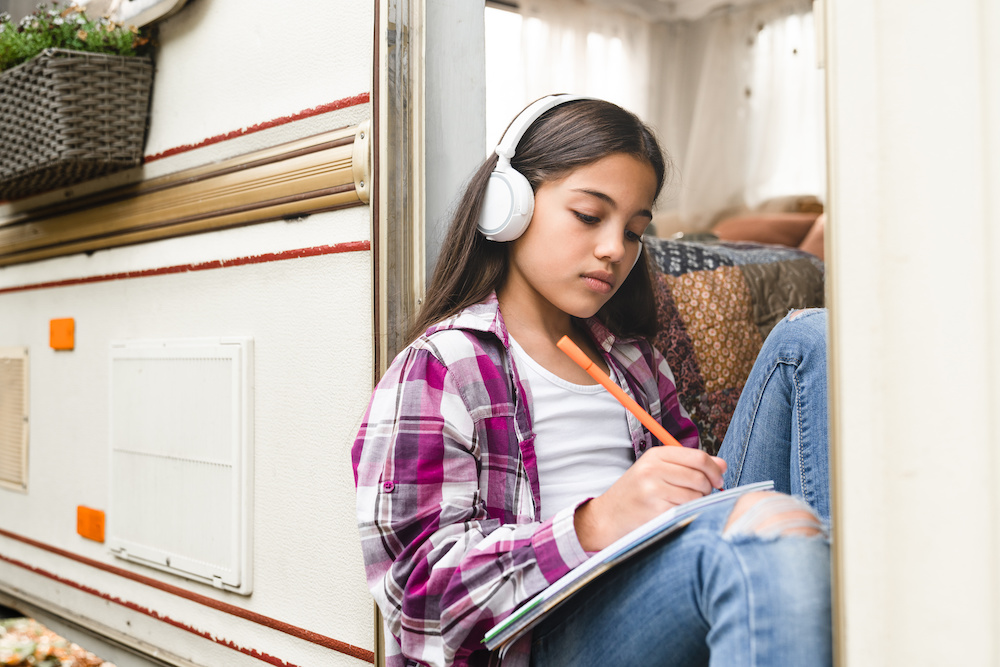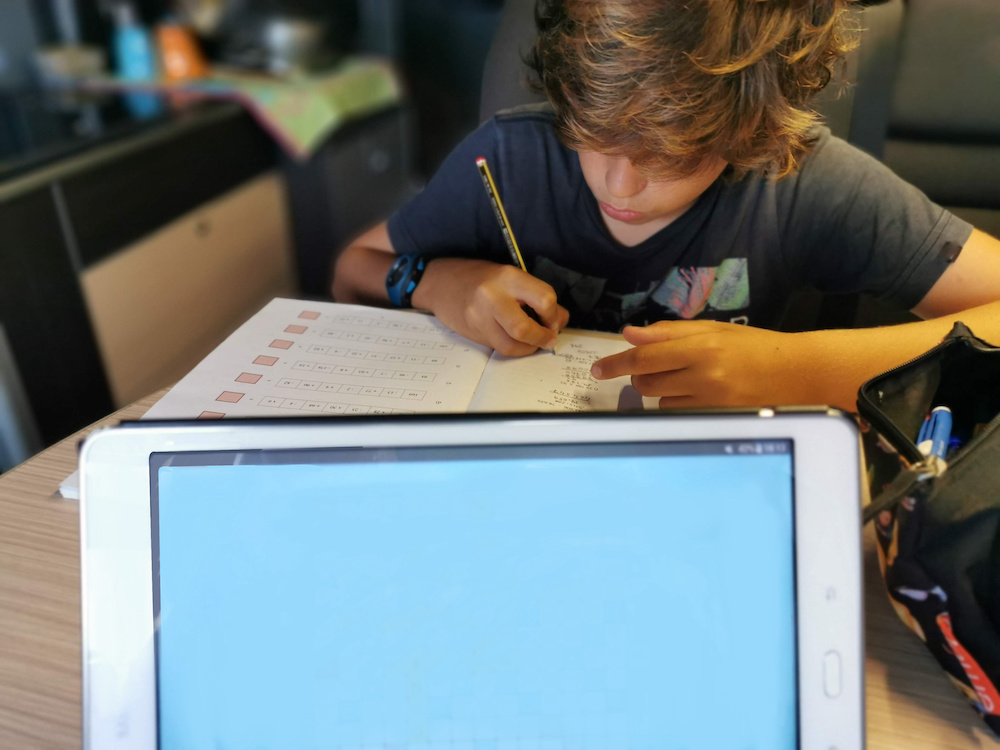RV living allows children to make lasting memories while exploring the country’s vast natural treasures. However, as parents, it’s your responsibility to give your children a solid educational foundation. You must establish an effective road schooling program while on the road. In this article, we will discuss schooling on the road in more detail.
Benefits of Road Schooling
Schooling on the road allows you to be your child’s teacher, meaning that your child will get individual attention that is not available at traditional schools. Your child will be required to participate in their lessons every day, and they will be able to focus on the things they enjoy and struggle with the most.
You will also get to create your school schedule. You can learn on the days you want, start when you want, and take field trips when you want. This flexibility will be helpful when you want to take a day or a half-day to explore a particular landmark throughout the week.
Your child will be able to experience many locations and landmarks for themselves instead of through a textbook. This hands-on experience will help them understand the importance of each landmark. They can also learn even more about these locations by taking guided tours. It’s a much more immersive learning experience designed to help them retain the knowledge and lessons they should learn from these experiences.
You will also free your child from the hazards children experience daily at school, such as contagious diseases and bullying.
Finally, you can teach your children how you want to teach them. You will be free to include religious lessons in your daily schooling.
Considerations of Road Schooling
While road schooling has many benefits, there are also some things to be aware of.
Home schooling keeps children out of school, which includes a valuable social component. If you decide to teach your child during RV living, you need to do your best to establish a social life for them. However, this can be difficult while on the road. You can look for children’s programs at the different spots you visit so that your children can interact with other children. You can also limit your road schooling to a single year, putting them back in traditional school at the end of the year.
You will also be responsible for teaching your children. While it may be easy to teach younger children, the lessons will continue to get more difficult as you get older. You may also not have training on how to teach children of different ages. Teachers know the various teaching techniques and which work best with other children at different stages of their development.
Finally, you must also be aware of laws regarding homeschooling. It will be your responsibility to ensure that you meet all of the requirements of the homeschooling program you choose. You may also run into complications regarding teaching in different states. Be clear about the laws and how they apply to your situation.

Tips for Successful Road Schooling
· Choose an Accredited Home Schooling Program
The federal government acknowledges several homeschooling programs. Graduating from these programs meets the requirements of similar traditional education programs and results in the same degree. There are many programs available. Select the program that best fits your lifestyle.
You will be responsible for administering all required lessons for the program. You will use homework and quizzes to assess how well your child learned each lesson. You will also need your child to take standardized tests to monitor their progress formally. They must pass specific tests to progress to the next grade.
· Provide Your Children With Proper Educational Tools
While road schooling, you will be responsible for providing your children with everything they need to thrive in school. Since your children will learn from a new location weekly, they need a reliable internet connection and a laptop with video capabilities. Many RV parks, such as HWY 98 RV Park, have internet available for all visitors. You can also get a portable Wi-Fi router to access Wi-Fi in your RV.
Your child will also need school supplies, such as notebooks, pens, folders, whiteboards, markers, books, and more. Get everything ready before the school year starts, and organize all the school supplies in a dedicated location on your RV.
· Establish a School Schedule
You will need to establish a schedule that gives you plenty of time throughout the week set aside for lessons, homework, and studying.
The RV may not be the most conducive environment for learning. Therefore, you should plan where you will perform your lessons each day. You can perform your lessons at your RV park if they have free Wi-Fi and comfortable accommodations. You can opt to teach your children outside at picnic tables or inside at a library or a business center somewhere.
You can schedule studying and homework while driving in the RV, as long as you have a space for them to learn. You’ll also need to have Wi-Fi in the RV.

· Prioritize Education
It can be easy to get caught up in life on the road. During your RV adventures, you need to make a point to prioritize education. Your children will mimic your attitude toward education. If you don’t make it essential to you, it won’t be necessary to them.
Plan your travels around your schooling – not the other way around. Do your best to arrive at your most anticipated destinations on the weekend.
You also need to create strict rules regarding learning with consequences if the child does not participate in lessons or do their homework.
· Incorporate Your Adventures into Their Formal Education
Schooling on the road gives your children the unique opportunity to gain hands-on experience in the wild. This can come in handy in several different ways. Your children can learn about plants and animals in person to complement their biology lessons. They can also use the beauty of their changing natural surroundings as inspiration in art or creative writing classes. Additionally, they can explore famous landmarks in person while learning about them in history or English classes. You can even incorporate your surroundings into math problems.
You can also use your adventures as motivation to finish specific lessons. After your child completes their schooling for the day, they can be rewarded by going to the pool or hiking. They will learn that there’s a reward for their hard work.
· Identify and Nourish Your Child’s Passions
As your child’s teacher, you should make a point to identify their educational strengths. You can tailor your daily itinerary to nourish those strengths while meeting all program requirements. The customized curriculum allows your child to thrive and spend more time on the things they love instead of following a traditional program with less flexibility.
· Enlist the Services of Online Tutors
There will come a point when you won’t be able to properly teach your children their homeschool lessons, especially as they get older.
Learning the lessons together can be frustrating and limiting. Hiring someone with more knowledge to teach specific lessons throughout the week can be more beneficial.
Incorporate tutor sessions one to twice weekly for more advanced lessons, such as algebra and physics. During the sessions, the tutor can review the week’s lesson and homework associated with the lesson before they turn it in.
Conclusion
Children can learn a lot while living in an RV. However, they need the structure of a homeschool program while they join you on your adventures. With the proper support, your children can thrive while learning on the road. Start preparing for the next school year today.
HWY 98 RV Park is near areas that offer golfing, fishing, and other areas your children can explore for educational purposes for your children. Reach out today to schedule your next adventure with us!
